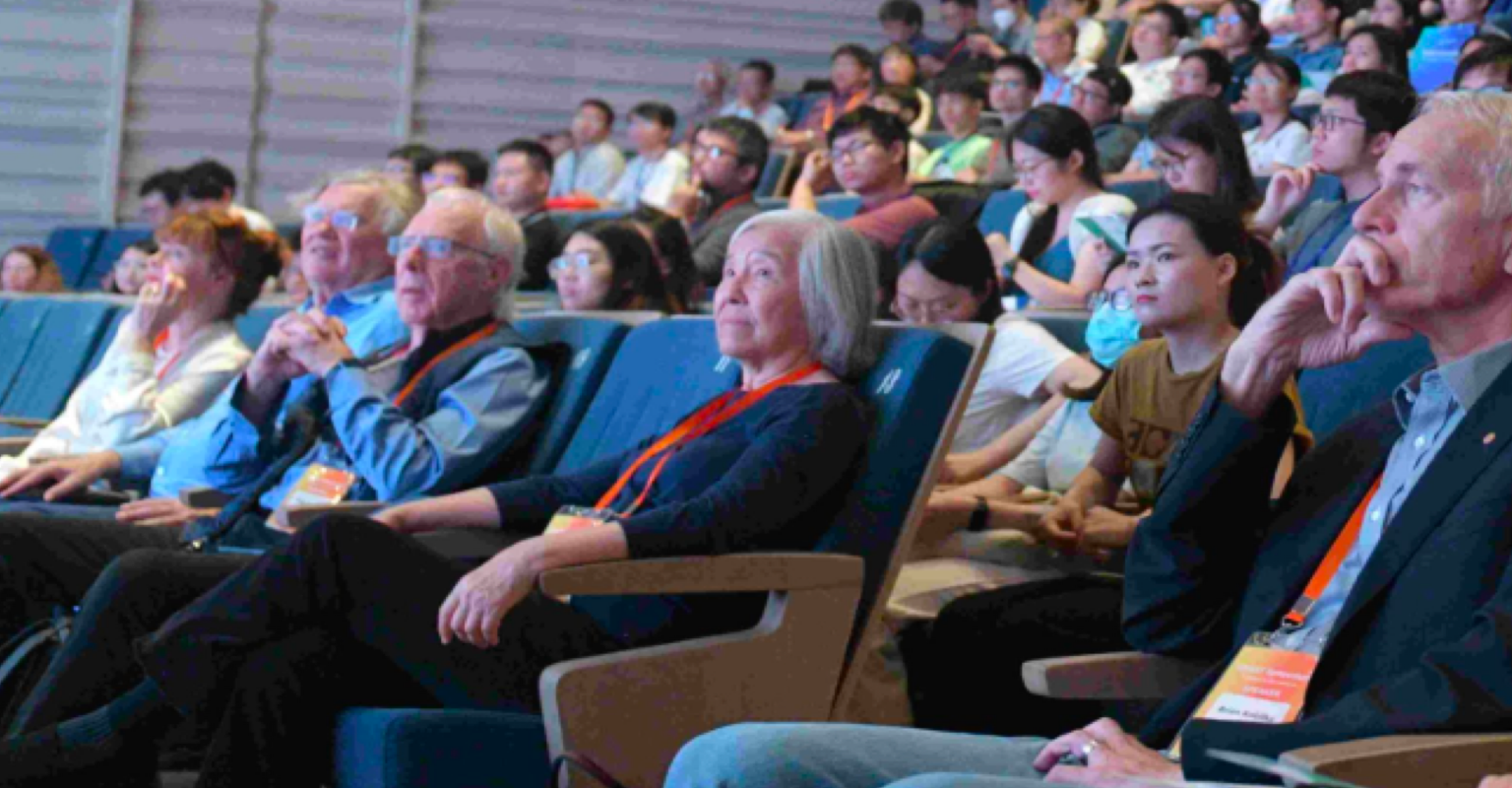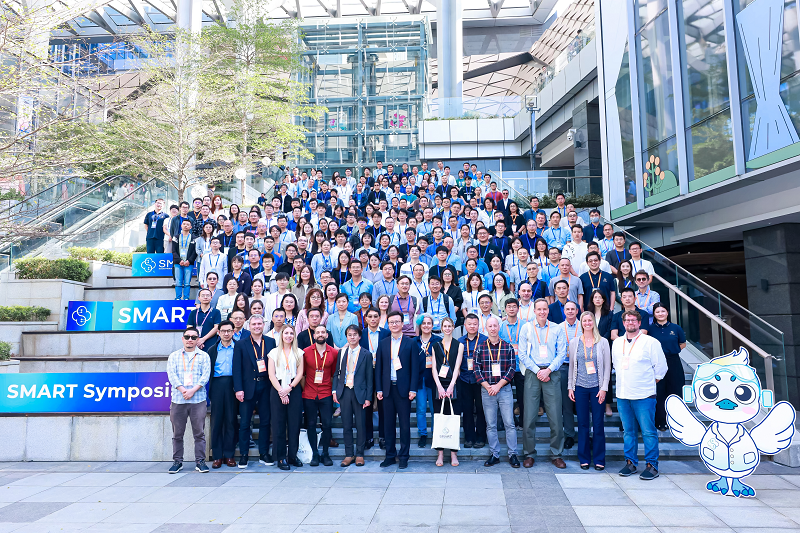


























 Registration
×
Registration
×


Targeted protein degradation (TPD) stands as a revolutionary technology capable of selectively eliminating specific proteins of interest by leveraging natural cellular processes, including the ubiquitin-proteasome and lysosome pathways. TPD technology holds immense promise for the treatment of diverse diseases, ranging from cancer, neurodegenerative diseases, autoimmune disorders, inflammatory ailments, to viral and bacterial infections. Given its potential to overcome the challenges associated with traditional drug modalities like small molecules and biologics, TPD has garnered significant attention from academia, pharmaceutical industry, and investors world-wide.
The theme of this symposium will be centered on development and application of TPD through chemical and biological innovations, serving not only as a research tool to interrogate and uncover new biology but also as a therapeutic modality to treat human diseases. Join us in lively discussion, networking opportunities with colleagues from diverse backgrounds worldwide, and to discover inspiring presentations and poster sessions at this exciting gathering in Shenzhen, China.
Alessio Ciulli, University of Dundee
Peng Chen, Peking University
Nathanael Gray, Standford University
Frank Yan, 3E Bioventures
Nieng Yan, Shenzhen Medical Academy of Research and Translation, Shenzhen Bay Laboratory, Tsinghua University
Michael Berlin, Arvinas
Maria-Laura Bolognesi, University of Bologna
Yong Cang, ShanghaiTech University
Giulia Caron, University of Turin
Peng Chen, Peking University
Alessio Ciulli, University of Dundee
Katherine Donovan, Dana-Farber Cancer Institute
Nathanael Gray, Stanford University
Gwenn Hansen, Nurix Therapeutics
Tasuku Ishida, Elix Inc
Katrina Jackson, C4 Therapeutics
Jian Jin, Icahn School of Medicine at Mount Sinai
Manfred Koegl, Boehringer Ingelheim RCV
Wei Lin, Revolution Medicines
Boxun Lu, Fudan University
Hannah Maple, Bio-Techne
Behnam Nabet, Fred Hutchinson Cancer Center
Yu Rao, Tsinghua University
Joachim Rudolph, Genentech
Mathew Sowa, C4 Therapeutics
Weiping Tang, University of Wisconsin-Madison
Andrea Testa, Trimtech Therapeutics
Vesna Vetma, University of Dundee
Shaomeng Wang, University of Michigan Comprehensive Cancer Center
Peng Wu, Scripps Research
Yue Xiong, Cullgen
Tinghu Zhang, Stanford University
Guangrong Zheng, University of Florida
Ning Zheng, University of Washington
|
Day 1 (November 11) |
|
|
16:00 - 20:00 |
Check-in and registration |
|
|
|
|
Day 2 (November 12) |
|
|
08:00 - 09:00 |
Registration |
|
09:00 - 09:05 |
Opening remarks |
|
Session 1: Proteolysis targeting chimera (PROTAC) Chair: Long Gui |
|
|
09:05 - 09:35 |
Giulia Caron, University of Turin Emerging strategies to design oral bioavailable PROTAC drugs |
|
09:35 - 10:05 |
Vesna Vetma, University of Dundee Targeting cancer with small molecule panKRAS degraders |
|
10:05 - 10:35 |
Shaomeng Wang, University of Michigan Targeting “undruggable” proteins using the PROTAC technology for new therapeutics |
|
10:35 - 11:05 |
Break & Group photo |
|
11:05 - 11:35 |
Maria-Laura Bolognesi, University of Bologna Opportunities and challenges in the discovery of PROTACS for treating parasitic diseases |
|
11:35 - 12:05 |
Alessio Ciulli, University of Dundee New insights and twists on PROTAC and molecular glue degraders design and mechanism |
|
12:05 - 12:35 |
Jian Jin, Icahn School of Medicine at Mount Sinai New approaches to target undruggable proteins |
|
12:35 - 14:00 |
Lunch break |
|
Session 2: Molecular glue and induced proximity Chair: Yunnan Hou |
|
|
14:00 - 14:30 |
Tasuku Ishida, Elix, Inc. Intramolecular bivalent molecular glue: a novel mechanism for targeted protein degradation |
|
14:30 - 15:00 |
Nathanael Gray, Stanford University Induced proximity from degraders to transcriptional activators |
|
15:00 - 15:30 |
Andrea Testa, Trimtech Therapeutics Inducing proximity "two ways": a differentiated TPD approach to selectively degrade protein aggregates |
|
15:30 - 16:00 |
Ting Han, National Institute of Biological Sciences, Beijing Selective degradation of multimeric proteins by molecular glue and PROTAC degraders |
|
16:00 - 16:30 |
Yong Cang, ShanghaiTech University Targeting the undruggable proteome with molecular glue degraders |
|
16:30 - 18:00 |
Poster session |
|
Day 3 (November 13) |
|
|
|
|
|
Session 3: Targeted protein degradation (TPD) in drug discovery and development Chair: Xiaoyu Tang |
|
|
09:00 - 09:30 |
Manfred Koegl, Boehringer Ingelheim RCV Confounding factors in the degradation of short-lived proteins |
|
09:30 - 10:00 |
Joachim Rudolph, Genentech Discovery of new monovalent degraders of SMARCA2/A4 |
|
10:00 - 10:30 |
Guangrong Zheng, University of Florida Discovery of Bcl-xL and Bcl-2 selective degraders for clinical translation |
|
10:30 - 11:00 |
Break |
|
11:00 - 11:30 |
Michael Berlin, Arvinas Recent progress in the neuroscience drug discovery programs using PROTAC® technology |
|
11:30 - 12:00 |
Wei Lin, Revolution Medicines Targeting the active state of RAS using the tricomplex platform |
|
12:00 - 12:30 |
Kate Jackson, C4 Therapeutics, Inc. The discovery and characterization of a selective and orally bioavailable bromodomain-containing protein 9 (BRD9) degrader |
|
12:30 - 14:00 |
Lunch |
|
14:00 - 14:30 |
Gwenn Hansen, Nurix Therapeutics, Inc. Discovery of a pan-mutant BRAF degrader for the treatment of primary and inhibitor-resistant solid tumors |
|
14:30 - 15:00 |
Mathew Sowa, C4 Therapeutics, Inc. CFT1946 is a potent, selective BiDACTM degrader of BRAF V600 mutant protein with superior efficacy to approved inhibitors in preclinical models and shows early evidence of clinical anti-tumor activity in BRAF V600 mutant driven cancers |
|
15:00 - 16:00 |
Break & Poster session |
|
Session 4: Membrane protein degradation (MPD) Chair: Yun Ge |
|
|
16:00 - 16:30 |
Peng Chen, Peking University Targeted Protein Degradation in the transmembrane and extracellular space |
|
16:30 - 17:00 |
Peng Wu, The Scripps Research Institute Degradation of Slglec-7 and -9 to reprogram tumor microenvironment for cancer immunotherapy |
|
17:00 - 17:30 |
Weiping Tang, University of Wisconsin-Madison Enabling platforms to accelerate the development of degraders for intra- and extracellular proteins |
|
17:30 - 18:00 |
Boxun Lu, Fudan University A potential new degrader technology targeting membrane proteins |
|
18:00 - 20:00 |
Banquet & Poster award |
|
20:00 - 22:00 |
Cocktail party for all participants |
|
Day 4 (November 14) |
|
|
|
|
|
Session 5: Structural biology, proteomics, and new modalities Chairs: Xin Li, Huadong Li |
|
|
09:00 - 09:30 |
Behnam Nabet, Fred Hutchinson Cancer Center Strategies to chemically control protein stability and activity |
|
09:30 - 10:00 |
Ning Zheng, University of Washington Converging mechanism of a molecular glue degrader and cancer mutations |
|
10:00 - 10:30 |
Katherine Donovan, Dana-Farber Cancer Institute Unveiling the hidden interactome of CRBN molecular glues with chemoproteomics |
|
10:30 - 11:00 |
Break |
|
11:00 - 11:30 |
Yu Rao, Tsinghua University Targeted Protein Degradation technology and applications |
|
11:30 - 12:00 |
Tinghu Zhang, Stanford University Covalent Glue for protein degradation |
|
12:00 - 12:30 |
Yue Xiong, Cullgen Targeting TRK protein degradation for cancer therapy and pain management |
|
12:30 - 14:00 |
Lunch |
|
14:00 - 14:30 |
Hannah Maple, Bio-Techne Next-generation covalent BromoTag as a novel tool for intracellular protein labeling |
|
14:30 - 15:00 |
Weihong Tan, Hangzhou Institute of Medicine Chinese Academy of Sciences Aptomics lead to multiomics: a new frontier in molecular medicine |
|
15:00 - 15:05 |
Closing remarks |